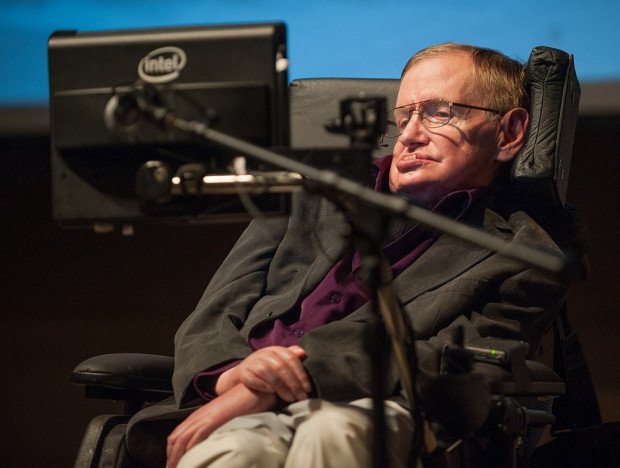What is ALS the disease that Stephen Hawking suffered from a young age?
.jpg)

Most of his life was spent in a wheelchair crippled by amyotrophic lateral sclerosis (ALS), a form of motor neurone disease that attacks the nerves controlling voluntary movement. Remarkably, Hawking defied predictions he would only live for a few years, overcoming its debilitating effects on his mobility and speech that left him paralysed and able to communicate only via a computer speech synthesiser. ‘I am quite often asked: how do you feel about having ALS?’ he once wrote. ‘The answer is, not a lot.
‘I try to lead as normal a life as possible, and not think about my condition, or regret the things it prevents me from doing, which are not that many.’ Stephen William Hawking, though, was far from normal. Inside the shell of his increasingly useless body was a razor-sharp mind, fascinated by the nature of the Universe, how it was formed and how it might end. ‘My goal is simple,’ he once said. ‘It is complete understanding of the universe, why it is as it is and why it exists at all.’
So what is ALS?
Amyotrophic lateral sclerosis (ALS) is the umbrella term used to describe motor neurone diseases, as well as the name for the most common disease in this group, which in the UK we call Motor Neurone Disease. A motor neuron is a nerve cell that makes voluntary muscle movements. MND is a disease in which these cells stop working properly. Motor neurone disease (MND) affects a person’s ability to move voluntarily. MND stops people eating, walking and talking, for example, but doesn’t stop them from thinking or feeling, effectively leaving sufferers ‘locked in’ to their bodies. There is no known cure at the moment. MND is quite rare – only about 5,000 people in the UK suffer from the disease at the moment. However, it strikes fast, and half of people diagnosed with MND will die within the first 14 months of knowing they have it. Celebrities who have suffered from the disease include Professor Stephen Hawking and the actor David Niven. Hawking’s is an unusual case of MND as he’s survived with it for over fifty years. Only 5% of patients diagnosed with MND survive the first ten years after their diagnosis.
picture of people suffering from ALS
.jpg)
.jpg)

This is an informative post but not an original content which implies that you are abusing the steemstem tag. You should make your own findings next time before you post an article. I'm not saying you cannot read from another website, but you should only use that to acquire more knowledge on what you want to write.
thanks for your observation and upvote....